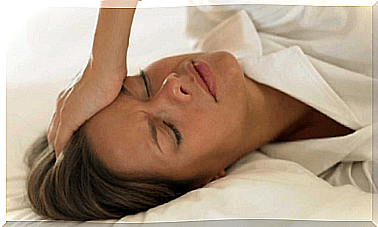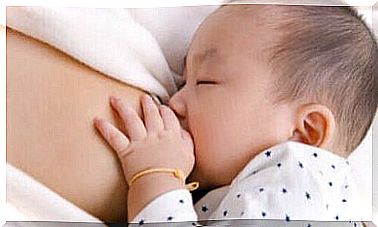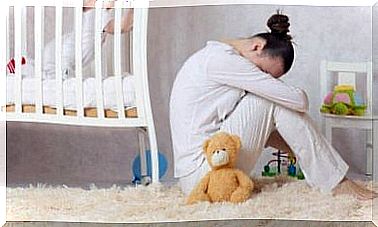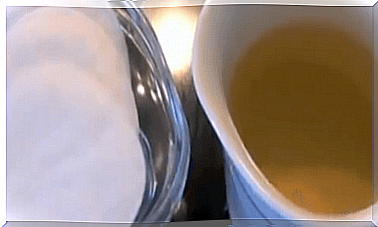What Are Holiday Blues And Its Symptoms?

Holiday blues is a set of emotions that people have after returning from vacation or another long period without work. It is a common term for the adjustment period that occurs when people re-enter the workplace and resume their work tasks.
This emotional imbalance is characterized by an increase in apathy, sadness and fatigue, both physically and psychologically. Therefore, this condition is sometimes called post-vacation depression.
Have you ever had this feeling? Read on to learn more about holiday blues.
Is holiday blues a disorder?
None of the psychiatry or psychologist handbooks consider holiday blues to be a mental illness. In addition, holiday blues can not be immediately considered a type of depression. However, this does not mean that it can not be a source of discomfort for people returning from vacation or a period of rest.
Therefore, doctors do not consider holiday blues to be a mental illness. Instead, this condition is a temporary emotional imbalance, whereby the person has to adjust to his tasks after a vacation or period without work.
According to Dr. Herrero and Esquirol (2016), the scientific community has not reached agreement on holiday blues. Researchers believe that it comes from the fact that working in a large part of our society is seen as a negative, forced activity involving sacrifice.
Also read: Work to live, do not live to work
They add that if society saw work as a place to foster creativity and personal development, holiday blues would not exist. Returning to something you do not like after doing something you like is and has always been problematic, not just when it comes to vacation.

Adaptation is the biggest problem
Professor Michael Baigent says the big problem with holiday blues is adapting. That is why he says that it is normal to feel sad, discouraged or nostalgic when returning from a holiday.
In addition, he claims that on vacation, people perform lots of enjoyable activities that they do not normally do when they are not on vacation. So when you stop doing things you like and start doing things that you do not like, you feel nostalgic and embarrassed.
Since the main problem with holiday blues is adapting to your routine, this condition usually lasts no more than ten or fifteen days. The person will feel disturbed and restless until he or she can manage to adapt to his or her thoughts, behaviors and emotions.
Symptoms of holiday blues
Since this condition is not clearly defined, neither are the symptoms. However, people who suffer from holiday blues can have both physical and mental symptoms.
Physical symptoms
- Fatigue or exhaustion
- Dizziness
- Poor concentration
- Lack of attention
Other less common symptoms include:
- Tachycardia
- Headache
- Lack of appetite
- Insomnia
- Digestive problems
Emotional symptoms
- Apathy
- Melancholy
- Nostalgia
- Irritability
- Grief
If the symptoms do not subside within a maximum of two weeks, you may be dealing with acute stress, generalized anxiety, panic attacks, etc., depending on the symptoms.
In this case, other things happen: There may be additional environmental or psychological factors that affect you. If you think this could be the case for you, try getting help from a psychologist or other professional. In this case, there may be another underlying disorder that may be affecting your overall functioning.

Live to vacation
Coach Shannah Kennedy explains in an interview with Travelers magazine that the American and European approach to life may be the possible cause of holiday blues.
He claims that most people live to vacation and wait for it as the biggest event of the year. They do not take advantage of, live for or appreciate the times in their lives where they work. It seems that vacations are the only thing they look forward to, are happy about and want to experience.
This lifestyle makes people wait a year to live in the moment for a month of vacation. Therefore, it is normal that when you have waited so long and are finally able to live in the moment, you feel nostalgia, sadness and apathy when you have to wait another year to rest and have fun again. !
It is therefore ideal to include small rest periods and “holidays” during the year, either on weekends or on your holidays. Go to the mountains on a day trip, or visit the beach if you live near the coast. In addition, it is important to put more energy into projects that you do not have to wait a year to enjoy and that do not cause disappointment when they end.
Also read: Working too much can affect your heart
The reasons for the holiday blues
As already mentioned, holiday blues are mainly due to difficulty adjusting when returning to work. That said, certain variables can increase the severity of this condition. The following issues may aggravate holiday blues:
- Problems with body image: While on vacation, people tend to eat more than usual and even be more sedentary. Therefore, their bodies may change and not be the same as they were before they went on vacation. This can lead to body image problems that make the work routine much more complex to adapt to.
- Fatigue: Sleep habits also tend to change in the summer and during the holidays as people perform more activities in the evening and sleep less. The accumulated fatigue can cause a feeling of lethargy and fatigue in the workplace.
- Increase in alcohol intake: As mentioned above, people often drink more alcohol on vacations. This can also increase fatigue.
- Making too many plans: During vacations, it is also common to make too many plans and not rest enough. Therefore, it is advisable to give time to do nothing or just enjoy its new surroundings so as not to feel the devastation of an overly busy schedule of the holiday.
Tips for overcoming holiday blues

Very few cases of stress after vacation require psychological intervention. In fact, those who do are often due to an underlying disorder or additional psychological factors. However, it is up to you to regulate your habits and keep track of how you want to adjust to your work life again as soon as possible.
Some of the best advice is as follows:
- Make sure you get enough sleep. Try to sleep about eight uninterrupted hours per day. night.
- Do not live to go on holiday. Instead, find new challenges and start new projects. Take care of yourself by maintaining a healthy diet and staying hydrated. It is also important to exercise, which can help improve your mood after vacation.
- Gradually return to work. Do not start working intensely suddenly: it will make adjustment more difficult.
- Do not start work right after returning from vacation. Instead, consider returning home a few days before.
- Be careful with alcohol and caffeine. Although alcohol can exacerbate feelings of apathy and nostalgia, caffeine can do the same with feelings of stress and anxiety.
- Reconsider your job. Evaluate your job and why you might feel it is a burden to you. Alternatively, you may want to reconsider your career and, if possible, find a job that truly promotes your personal growth.
If you think you may be suffering from holiday blues, it is a good idea to take it easy and be patient. Trust that the feelings of apathy and nostalgia will go away on their own in a few days.
As the last time you first learn how to approach the end of the holiday differently, it will be much easier the next time you return to work after the holidays. That way you come back updated, renewed and full of energy instead of apathetic, stressed and anxious.









